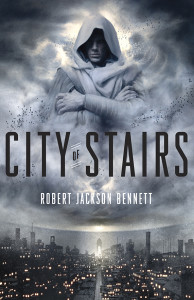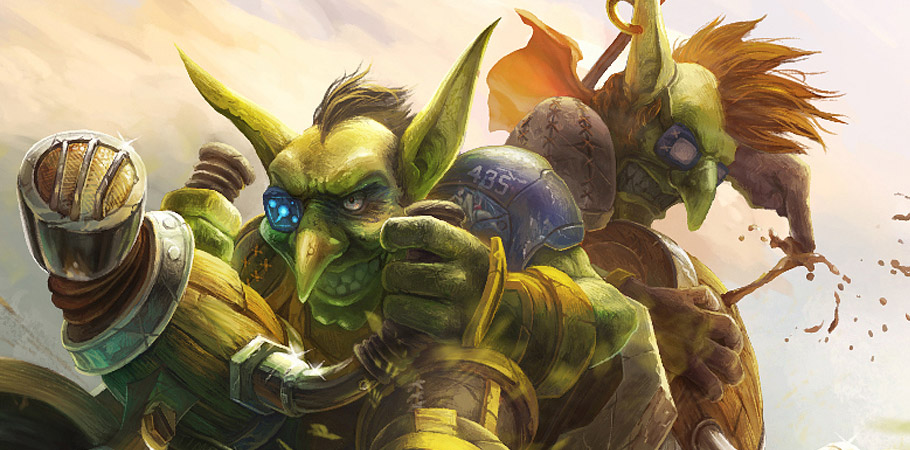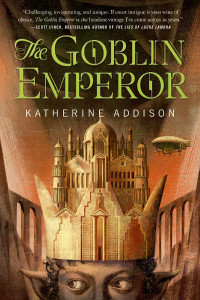As the Hugo nomination period draws to a close, here are the items that will appear on my final ballot. If you’re unfamiliar with any of the items, I highly encourage you to check them out. 2014 was a wonderful year for genre fiction and art.
Note: If a category doesn’t appear or is incomplete, it’s because I either a) did not make any nominations, or b) will be undecided on some of the final inclusions until the final hour.
Read More »
The flush of the 2014 Hugo Awards is fading, and, with the holidays just peeking around the corner, I wanted to take the time to discuss some of my favourite novels from 2014, the ones that, at this very moment, would comprise my nomination slate for the 2015 Hugo Award for Best Novel. Will it change by next spring when nominations are due? Undoubtedly.
These are all terrific novels, and, if you haven’t read them already, well, I envy you.
Best Novel
City of Stairs by Robert Jackson Bennett
Say hello to the best fantasy novel of 2014.
Even as I was startled by its twisted depth, I adored every moment I spent with City of Stairs. Colonialism lies at City of Stairs‘ centre, and RJB handles it with equal parts boldness and delicacy. The ruined beauty of Bulikov and its fallen gods haunted me long after I turned the final page.
Robert Jackson Bennett is best known for his contemporary fantasy and horror crossovers, such as American Elsewhere and The Troupe, so his move into more traditional epic fantasy put him on the radar of a lot of new readers, and the result is something special. On first reading City of Stairs, I described it to a friend as “China Mieville without the ego.” I’m not sure I still agree with that statement, because it’s unfair to saddle one writer with another’s baggage, but while reading City of Stairs I couldn’t fight the feeling that RJB was mixing and refining elements from some of my recent favourite fantasies. Other touchstones exists, such as Kameron Hurley’s The Mirror Empire and Max Gladstone’s Craft Sequence, that place RJB among the most exciting and vibrant young fantasy writers working today.
Read More »
I was asked for this post to write about hope in fantasy. And that means I need to talk about grimdark.
I was asked for this post to write about hope in fantasy. And that means I need to talk about grimdark. (Definition from TV Tropes here, for those who need it.) And I need to say, before I start, that I am a practitioner of grimdark; the Doctrine of Labyrinths quartet (Melusine (2005), The Virtu (2006), The Mirador (2007), Corambis (2009)) can be nothing but. So I’m not speaking as someone who abhors grimdark, but as someone who loves it.
One of the things behind grimdark, I think–and it’s not just grimdark, either, but most of Anglophone literature since somewhere around World War I–is a conviction that being pessimistic, tragic, depressing, dark means that a text is more “realistic,” more “serious,” and therefore inherently “better” than it would be if it allowed optimism and hope. I’ll get into the issue of “realism” later, but I want to point out here that tragedy is not inherently “better” as a literary form than comedy and writing a tragedy does not demonstrate greater skill/talent/genius than writing a comedy. (Kind of the reverse, in fact. Comedy is hard.) Read More »
Publisher: Tor Books -
Pages: 448 -
Buy: Book/eBook
Once upon a time there was a book. In the first twenty pages it had like a bajillion names, several dozen instances of archaic speech patterns, and quite a bit of moping. I was instantly willing to hate it. But, because I’m a true critic of the arts, I continued. Also, because I can’t really beat a book up unless I finish it, right? I admit to doing this on occasion. However, as I continued to read Katherine Addison’s The Goblin Emperor, I became enthralled. What was off-putting became second nature and beneath it was revealed a gorgeous narrative, a lush world, and dozens of fascinating characters. While there remains an absurd indulgence in complicated naming mechanisms, Addison’s fantasy novel rates among the best I’ve read.
Katherine Addison is a genius
Every book has a story, and The Goblin Emperor‘s begins long before it was published. Katherine Addison is actually Sarah Monette, a critically acclaimed author of four novels for Ace Books. Unfortunately, those books didn’t sell very well. The Goblin Emperor was submitted to Ace and rejected, forcing Monette to shop the project elsewhere. Purchased by the Jim Frankel (who has had some problems subsequently) at Tor, the novel found a home. Monette became Katherine Addison because bookstores aren’t big fans of authors who don’t sell real well, but are easily mollified with byline changes. I mention this because I have no idea whether Monette can write her way out of a paper bag, but Katherine Addison is a genius and Ace should be totally bummed they didn’t buy The Goblin Emperor. Read More »




